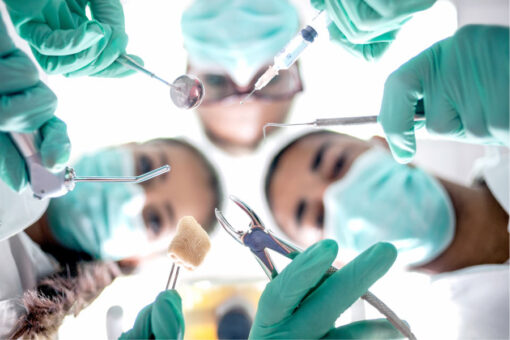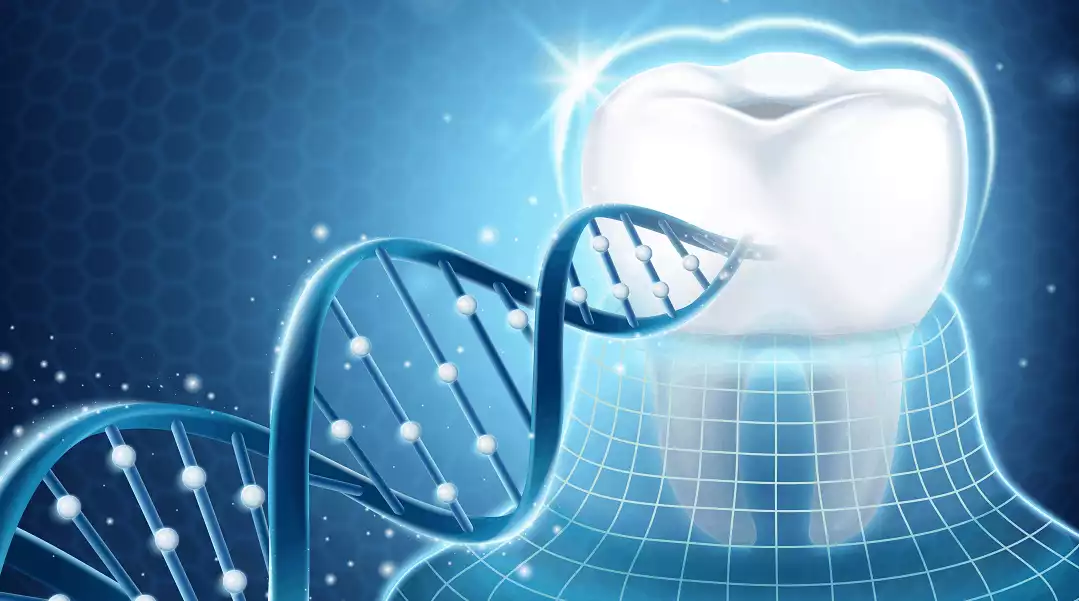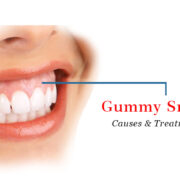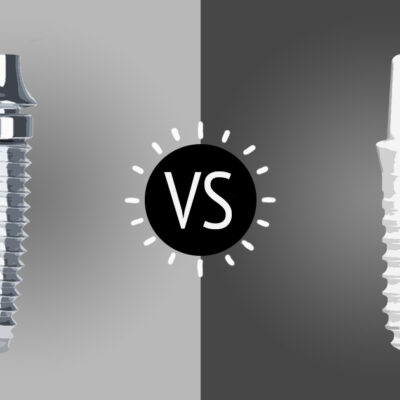Genetics has a huge impact on your risk of certain diseases. If you are interested in whether genetics impact your risk of dental problems, the answer is no. Understanding your genetic predisposition to dental problems can be a big help as you develop an effective prevention plan for these issues. Read on to learn about the potential role of genetics in dental problems and how you can use this information to protect your smile.
What does genetics have to do with dental problems?
Health conditions like diabetes or heart disease are often thought of as “genetic diseases”. This means that there is an identifiable genetic risk that contributes to these conditions. Genetics are the study of how your DNA (your unique genetic code) impacts your health. Scientists are constantly learning more about the specific genes that impact diseases like diabetes, cancer, and heart disease, and how these genes impact your risk of disease. In other words, genetics is the study of your DNA and how it impacts your health.
Your genes are inherited from your parents, and they determine many aspects of your health, including your risk of disease. For example, if one of your parents has diabetes, you have a much higher risk of getting it yourself than someone who doesn’t have that same family history. When scientists study the genetics of diseases like diabetes, they are looking for specific genes that are associated with higher risk. When they find these genes, they can use that information to predict disease risk.
Dental genes and risk for dental problems
Because genetics is the study of your DNA, it makes sense that there are specific genes that impact dental health. When scientists study the genetics of teeth, they are looking for specific genes that are associated with higher risk. When they find these genes, they can use that information to predict risk.
Overbites Researchers are also studying how genes may be associated with dental sensitivity and dental trauma, such as broken teeth. Dentists currently understand a few genetic oral health disorders, including the following:

- Cavities
- Gum disease
- Tooth discolouration
- Underbites
Dental problems can have both genetic and non-genetic causes. Some dental conditions, such as crowding of teeth, cleft lip and palate, and tooth enamel defects, have a genetic component and can be inherited. However, many dental problems, such as cavities, gum disease, and tooth loss, are caused by lifestyle factors, such as poor oral hygiene, a diet high in sugar, and smoking, and are not solely determined by genetics. It is important to maintain good oral health habits and to see a dentist regularly to reduce the risk of developing dental problems.
What are the most common genetic oral health conditions?
Cavities : Are the result of bacteria in your mouth breaking down the sugar in your diet and producing acid. When this acid comes in contact with your teeth, it can cause tooth decay. Cavities are the most common childhood disease in developed countries. There is a genetic component to cavities, which means some people have a higher risk of developing cavities than others. Researchers have identified a few genes that are associated with an increased risk of cavities. When these genes are present, an individual is at an increased risk of cavities.
Tooth discolouration : Some teeth naturally become darker over time as a result of small deposits of minerals in the teeth. This natural process doesn’t usually cause pain or affect the health of your teeth. However, some individuals have a genetic predisposition to this condition called dental fluorosis, which causes teeth to darken at a rapid rate. This results in teeth that are permanently discoloured and can impact an individual’s smile.
Underbites : A lower jaw that is too small or out of proportion with the rest of the face is medically known as an “underbite.” An underbite can cause pain or difficulty chewing. Some children are born with underbites, while others develop them later in life. An underbite is often genetic.
Other non-common genetic oral health conditions include:
- Cleft lip and palate: A congenital condition where the lip and/or roof of the mouth do not form properly
2. Amelogenesis imperfecta: A condition where the enamel on the teeth does not form properly, leading to fragile and discolored teeth
3. Dentinogenesis imperfecta: A condition where the dentin, the layer under the enamel, is abnormal leading to brittle, sensitive teeth

4. Hypodontia: A condition where one or more permanent teeth do not develop
5. Hyperdontia: A condition where an individual has more teeth than normal
6. Craniofacial anomalies: A group of conditions that affect the bones of the skull and face, including malocclusion (bad bite)
These conditions can impact oral health and may require specialized treatment. It’s important to consult with a dentist or specialist if you have concerns about your oral health or a family history of genetic dental conditions.
Understanding your genetic risk for dental problems
A genetic oral health condition is a sign that you have inherited a harmful gene from one of your parents. That gene will impact your dental health throughout your lifetime. It’s important to note that people with these genetic conditions don’t always show symptoms of their genes. Sometimes the condition is expressed in only one of the gene carriers. In other words, only one parent has to pass a harmful gene to their child for the child to inherit the oral health condition.
This means that even if you have a gene that is associated with dental problems, you might never experience those symptoms. That’s why it’s important to visit the dentist regularly, so they can catch and treat dental problems before they become serious issues. If you have a family member who has struggled with dental diseases, you may want to consider genetic testing to learn more about your dental health risk.
Understanding your genetic risk for dental issues can be helpful in preventing and managing these conditions. Here are some steps you can take to assess your risk:
- Review family history: Ask family members about their oral health history and if they have any genetic dental conditions.
- Consult with a dentist: Your dentist can assess your risk for genetic dental conditions based on your oral health, family history, and any noticeable physical traits.
- Genetic testing: Genetic testing can be done to determine if you carry genes that increase your risk for certain dental conditions.
- Maintain good oral health: Regardless of your genetic risk, maintaining good oral health habits, such as brushing, flossing, and visiting the dentist regularly, can help prevent or reduce the impact of dental problems.
It’s important to keep in mind that genetics is just one factor in determining your risk for dental problems. Other factors, such as lifestyle and environment, also play a role in oral health.
Conclusion
Genetic research has identified a few genes that are associated with an increased risk of dental conditions. You may have one, several, or none of these genes; it all depends on your DNA. You can use this information to understand your dental health risk and make changes to reduce your risk of dental issues. Most dental operations, from consultation to final restorations, can be completed in a single day at Royal Dental Clinics. Doctors, well-trained personnel, separated facilities, and cutting-edge technology constitute our firm foundation. These allow us to give our patients the best care possible even when emergency Root Canal Treatment needs to be performed that very day.






